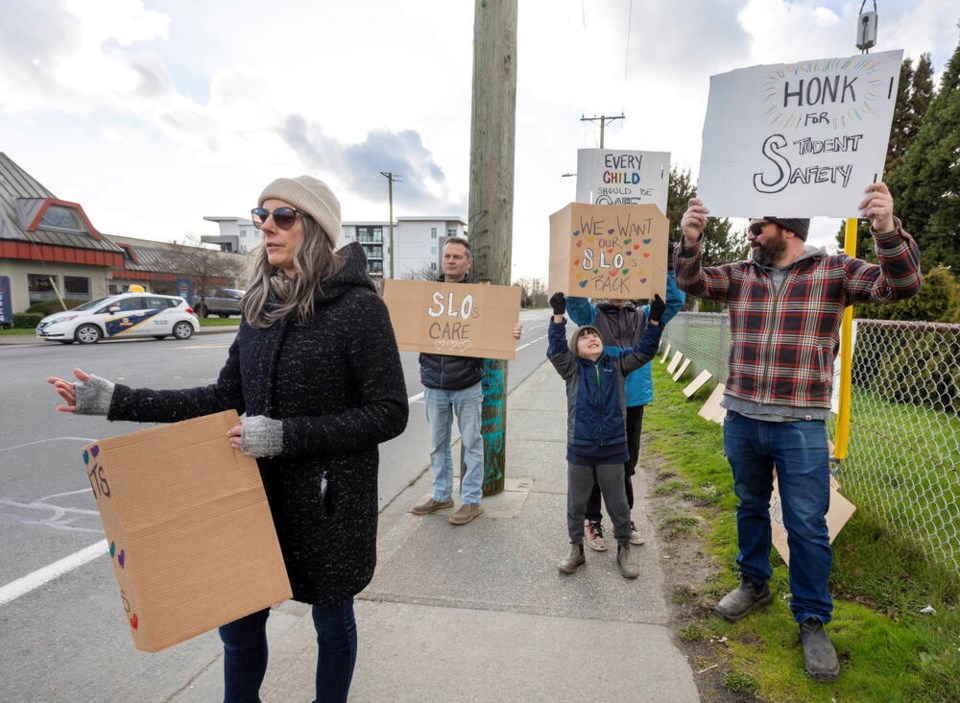When B.C. human rights commissioner Kasari Govender strongly urged all B.C. school trustees to shut down school police-liaison programs, she included a condition.
“Unless and until they can demonstrate an evidence-based need for them that cannot be made through other services …[or] until the impact of these programs can be established empirically.”
Victoria Police Chief Del Manak has now gone public with concerns about intensified and deeply concerning gang activities around city schools.
Whether it’s empirical or evidence-based enough is a judgment call.
But it’s hard to understand why anyone would dismiss it. The warning should make it clear that the Greater Victoria School Board’s wrong-headed move last year to cancel the program was a bad call. It should be reversed immediately.
The only thing that might raise questions is the idea that the chief is over-emphasizing a threat. That distant possibility arises because he can’t offer names, first-person accounts or hard evidence, obviously out of concern for victims.
It’s not unheard-of in municipal police politics for cops to hype public-safety problems in order to get budget hikes.
But the money for the program is already there. He’s advocating to put liaison officers back in schools simply because there’s a pressing need for them.
He has told the school board there are seven gangs operating in Victoria and they are recruiting and grooming students to traffic drugs, vape products and the like.
He said they are sophisticated at extorting parents of kids who have entered the gangster life, and use violence and threats.
“Parents have relocated their families to try to avoid these gangs. … Unfortunately, most kids are naïve to gang recruiting tactics and by the time they are working for a gang they have incurred a debt and are on the way to becoming entrenched.”
What more evidence does anyone need? Restoring police liaison officers won’t send the gangsters fleeing. But it could help kids who get way over their heads associating with dangerous people and find themselves with nowhere to turn.
Having at least a nodding acquaintance with a police officer at school could make a huge difference when it comes to getting out of a jam.
Victoria police held information sessions about the problem and so far more than 600 concerned people have attended. That doesn’t sound like an issue that’s being hyped.
While this menacing-sounding problem is developing, current board policy is that the police liaison program is not welcome. Not only that, police officers are not welcome in schools for presentations or any other visits, other than emergency calls or lockdown drills.
Manak said that’s a “terrible shame.”
As outlined here Thursday, school liaison officers were yanked and reassigned elsewhere by Manak during a budget crunch in 2018.
The previous board and the Greater Victoria Teachers’ Association objected strenuously, warning of the dire consequences of losing the program. “Disappointment and concern” were voiced. There were warnings of “negative long-range consequences.”
But the tide turned later, and various interest groups started voicing worries about minority students being traumatized by seeing police in schools. So the current board completely reversed course after some study and banned cops from schools.
Govender joined the argument against liaison officers 15 months ago, with the letter cited above.
She said Friday that optimal student safety is the prime concern and cancelling the program “until we know how effective it is” works to that goal.
Govender said its absence does not end all student-police interactions, and officers still have jurisdiction to deal with criminality.
The gang concerns don’t constitute grounds to restart the program, she said, because there are indications, from findings that it disproportionately affects racialized students negatively, of “it potentially causing safety concerns of itself.”
More next week.
Just So You Know: As Manak told the CBC’s Gregor Craigie this week, the ban on police in schools is not just a policy paper. They are now treated like any other stranger who comes in. There’s an app “that tracks police officers coming onto school property … teachers are asking police why are you here, what is the purpose of your visit?”
So they’re tracking police in schools where official policy bars police from being on site to help kids who the gangs are targeting.
That takes the situation into the realm of lunacy.
The liaison program should be adjusted to reflect racial and minority sensitivities and reintroduced in short order.
>>> To comment on this article, write a letter to the editor: [email protected]



